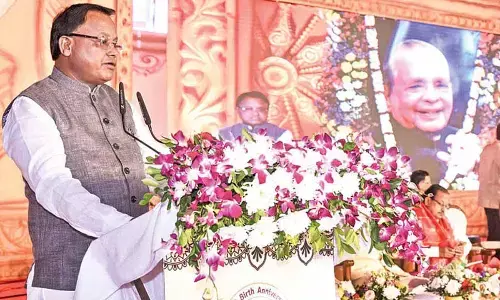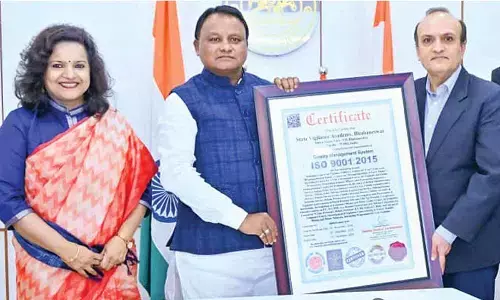Alzheimer's research nears critical milestones in the battle against memory loss
Share :

Alzheimer's disease, a relentless and devastating neurodegenerative condition, has long been one of the most challenging puzzles in the realm of medical science.
New Delhi: Alzheimer's disease, a relentless and devastating neurodegenerative condition, has long been one of the most challenging puzzles in the realm of medical science. As our aging population grows, so does the urgency to find a cure or more effective treatments for this enigmatic disease. The battle for memory is ongoing, and Alzheimer's research is at the forefront of this crucial fight.
The burden of Alzheimer's disease
Alzheimer's disease, named after the German neurologist Alois Alzheimer, who first described it in 1906, is characterised by progressive memory loss, cognitive decline, and behavioural changes. It is the most common cause of dementia among older adults and currently has no cure. According to the World Health Organization, over 50 million people worldwide live with dementia, and approximately 60-70 per cent of those cases are due to Alzheimer's disease.
The estimated dementia prevalence for adults ages 60+ in India is 7.4 per cent, with significant age and education gradients, sex and urban/rural differences, and cross-state variation.
The burden of Alzheimer's extends beyond the individuals diagnosed, it affects families, caregivers, and society as a whole. As the population ages, the number of people affected is expected to soar, making the need for effective Alzheimer's research even more pressing.
Unraveling the complexities
Understanding Alzheimer's disease is akin to solving a complex jigsaw puzzle with countless missing pieces. Researchers have made significant strides in unraveling the mysteries of the disease, but many aspects remain elusive. Alzheimer's is characterised by the accumulation of abnormal protein aggregates in the brain, including beta-amyloid plaques and tau tangles. These anomalies disrupt communication between brain cells, leading to cell death and cognitive decline.
Numerous theories about the origins of Alzheimer's have been proposed, including genetic factors, inflammation, and lifestyle choices. However, it's increasingly clear that a combination of these factors likely contributes to an individual's risk.
The promise of early detection
One of the most exciting areas of Alzheimer's research is early detection. Identifying the disease in its early stages allows for interventions that may slow its progression. Biomarker research, including the analysis of cerebrospinal fluid and neuroimaging techniques, is shedding light on the changes that occur in the brain long before symptoms appear. These advances bring hope that, in the future, Alzheimer's may be detected and treated much earlier, potentially altering the course of the disease.
The role of technology
Technology, particularly artificial intelligence (AI), is playing a pivotal role in Alzheimer's research. Machine learning algorithms can analyse vast datasets, such as brain scans and genetic information, to identify patterns and correlations that human researchers might miss. These AI-driven insights are accelerating our understanding of the disease and aiding in the development of targeted therapies.
A collaborative effort
Alzheimer's research is a global endeavour, involving scientists, clinicians, and organisations worldwide. Governments and philanthropic entities are also investing heavily in Alzheimer's research, recognising the social and economic impact of the disease. Collaborative initiatives, data sharing, and open science principles are fostering progress and bringing us closer to the day when Alzheimer's is no longer an insurmountable challenge.
In conclusion, the battle for memory is an ongoing struggle, but Alzheimer's research is making remarkable headway. While a cure remains elusive, the field is advancing our understanding of the disease, offering hope for early detection and more effective treatments. With continued global collaboration, innovation, and investment, we can shape a future where Alzheimer's disease is no longer a sentence to memory loss and suffering.









